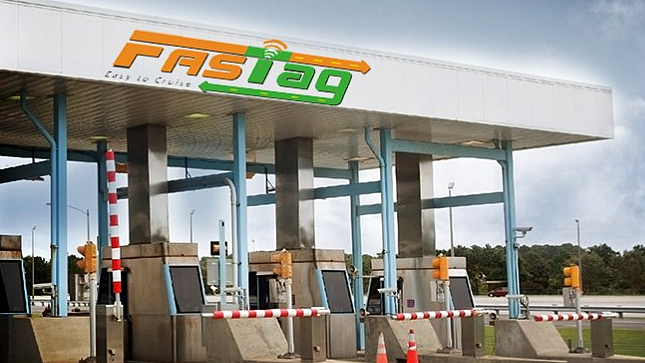FASTags, generally found affixed on the windscreen of vehicles, could soon be widely used for more than just electronic toll collection.
ICICI and IDFC First Bank have already started rolling out FASTag-enabled fuel payments at select outlets by tying up with petroleum companies like Indian Oil and Hindustan Petroleum.
Various startups are also involved in running pilots to allow FASTag payments in commercial centres such as cinemas and fuel outlets.
The possibility was floated in 2019 when Road Transport and Highways Minister Nitin Gadkari said that FASTags might be used as cards for buying petrol and paying parking fees in the future, PTI reported.
FASTag is a payment collection system which uses radio frequency identification (RFID) technology. It has been developed by the National Payments Corporation of India (NPCI) and is operated by the National Highways Authority of India (NHAI).
'$100 Billion Market Opportunity'
Goa-based startup Numadic has tied up with Hindustan Petroleum and Indian Oil to use FASTags for fuel payments. The pilot began last October and has received a lot of traction from consumers, Numadic said, according to a Mint report.
“We are planning to expand to more petrol stations, fuel companies, and banks. Real implementation will happen now as we move from proving the concept to scaling it across the country," Luke Sequeira, founder and CEO of Numadic told the publication.
He added that the company is planning to explore payments at drive-in cinemas and for traffic fines as well.
“If you look at all these payments in combination, we are looking at a market opportunity of $100 billion of FASTag payments. If you add insurance payments, the opportunity is even bigger."Luke Sequeira, CEO of Numadic, to Mint
Gururgam-based Park+ has partnered with IDFC to allow the use of FASTags for payment at parking lots at over 15 malls in Delhi, Mumbai, Bengaluru, Coimbatore, Dehradun, and Vadodara, according to the report.
Park+ is also testing the use of FASTags at HPCL petrol pumps, as well as society and corporate gates.
“It has cut down queues significantly for parking as you don’t have to stop, collect a manual receipt, and then make payment," Amit Lakhotia, founder and CEO of Park+, told Mint.
He added that the company aims to expand FASTag payments to 40 more malls and 1,500 government parking lots in 2022.
Not a Seamless Experience
FASTag isn't yet a seamless experience. Since its roll out, commuters have complained about several issues, including double payments, scanning errors and long lines.
Toll plazas don't seem to be able to scan FASTags from the windshields of moving vehicles. Cars are often required to stop before an operator manually scans the tag.
These problems are expected to carry over to other points of payment.
“FASTags are only for deduction of payments; how you read FASTags from a stream of vehicles moving in a relatively haphazard way at fuel pumps is important. Also, most FASTags won’t have enough balance for fuel payments,"Amit Lakhotia, CEO of Park+, to Mint
There are also concerns about privacy and security.
Ashutosh Sharma, vice president and research director at Forrester Research, told Mint that the key challenge for NPCI will be to ensure that this system is securely and reliably rolled out to private entities.
“This will mean they may need to change the payment process flow to include an explicit approval from the vehicle owner, among other modifications," he added.
(With inputs from Mint and PTI)
(At The Quint, we question everything. Play an active role in shaping our journalism by becoming a member today.)
